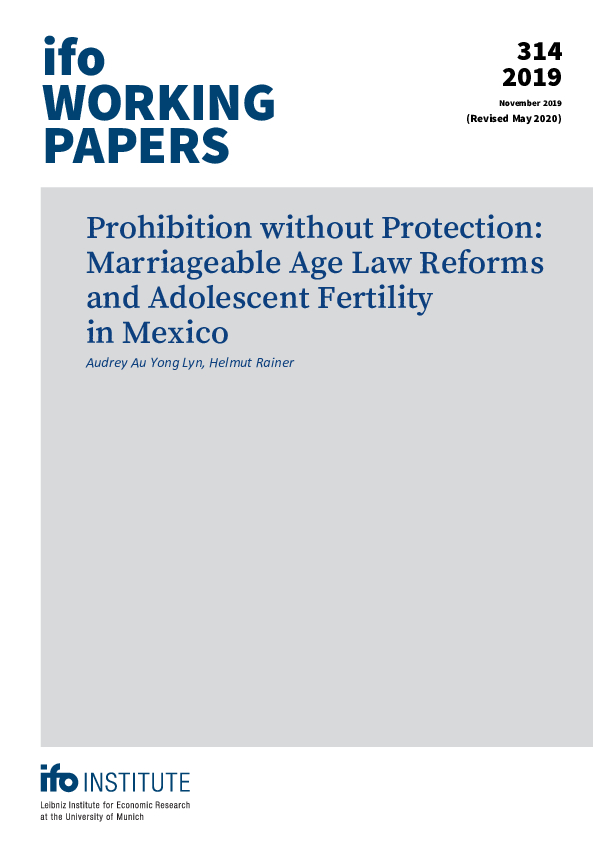Prohibition without Protection: Marriageable Age Law Reforms and Adolescent Fertility in Mexico
ifo Institute, Munich, 2019
ifo Working Paper No. 314 (revised version: May 2020)

In this study, we exploit the differential timing in minimum marriageable age laws in Mexico to estimate the impact of these civil law reforms on child marriage, adolescent fertility, girls’ school attendance and the likelihood of engaging in a consensual union. Using a differencein-differences methodology, the results show that states adopting minimum marriageable age laws exhibited a 49% and 44% decrease in child marriage rates and the likelihood of girls being in consensual unions respectively. Contrary to what was expected however, the law had no impact on total teenage birth rates and girls’ school attendance. Additional findings reveal that the fall in child marriage rates was mainly driven by 16-17-year-old girls, and states where child marriage was less rampant prior to the law. We also find evidence of a decrease in teenage birth rates among girls living in rural areas by approximately 14% as a result of the law.